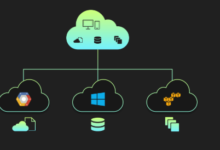Silent Powerhouses: Exploring the Benefits of Fanless PC Systems

The quest for quieter, more efficient systems continues in a world where technology continuously evolves. Have you ever wondered how silent yet powerful computers can enhance your work environment? Why choose a noiseless system over traditional models? These questions lead us to the remarkable innovation of fanless systems.
Fanless PC systems, designed to operate without the usual noisy cooling fans, offer many advantages. Understanding the transition from traditional noisy machines to these quiet powerhouses is pivotal. Let’s explore the benefits and understand why this technology is gaining popularity among users.
Unparalleled Quietness
One of the most significant benefits of fanless systems is their silent operation. Traditional computers rely on fans to cool their components, creating a constant hum or loud noise, especially under heavy workloads. Fanless systems eliminate this issue, providing a noiseless environment ideal for offices, studios, and homes. Silence not only enhances concentration but also improves overall productivity.
Enhanced Dependability
Fanless computers are known for their reliability. Without mechanical parts like fans, there is less possibility of failure due to wear and tear. This design leads to a longer lifespan and fewer maintenance needs. Dust and debris, common culprits in fan failure, are no longer a concern. This makes them particularly suitable for environments prone to dust, such as industrial settings.
Improved Energy Efficiency
Energy efficiency is another notable advantage. Fanless systems consume less power than traditional models. The absence of fans reduces the overall energy requirement, making them an eco-friendly choice. Lower power consumption benefits the environment and reduces electricity bills, making them cost-effective in the long run.
Read also Custom Truck Box Fit-Out Solutions: Tailored to Your Business
Compact and Modifiable Design
Fanless systems are typically more compact and versatile. They can be housed in smaller, sleeker cases without the need for large cooling fans. This makes them ideal for space-constrained environments and allows for greater installation flexibility. Whether mounted behind a monitor or integrated into a digital kiosk, their unobtrusive design enhances aesthetic appeal.
Ideal for Sensitive Applications
Certain applications require minimal noise and vibration. Fanless systems excel in these areas, making them perfect for medical facilities, laboratories, and recording studios. Their silent operation ensures they do not interfere with sensitive equipment or recording processes. Additionally, stable performance without distraction from noise is invaluable in these settings.
Simplified Maintenance
Due to the absence of fans, maintenance of fanless systems is significantly simplified. Traditional fans can accumulate dust, leading to overheating and potential damage to components. Fanless systems do not face this issue, reducing the need for regular cleaning and servicing. This aspect is specifically beneficial for users who prefer low-maintenance solutions.
Advanced Cooling Solutions
While fanless systems do not use traditional fans, they incorporate advanced cooling solutions such as heatsinks and heat pipes. These components dissipate heat efficiently without generating noise. High-quality materials ensure optimal thermal management, even under heavy loads. This innovative cooling approach maintains system performance and stability.
High-end Safety Features
Fanless systems often come with enhanced security features. These can include rugged cases that protect against physical tampering and support secure boot mechanisms to prevent unauthorised access. The absence of moving parts means fewer points of failure and less susceptibility to dust and debris, which can compromise security in traditional PCs. This makes fanless systems reliable for environments where data security is paramount, such as financial institutions and government agencies.
Fanless PC systems offer a compelling blend of silence, reliability, and efficiency. These silent powerhouses are revolutionising how you think about computing, making them an attractive option for various environments. The transition to these noiseless systems highlights a significant technological step forward, benefiting users seeking a quieter, more efficient, and eco-friendly solution.





